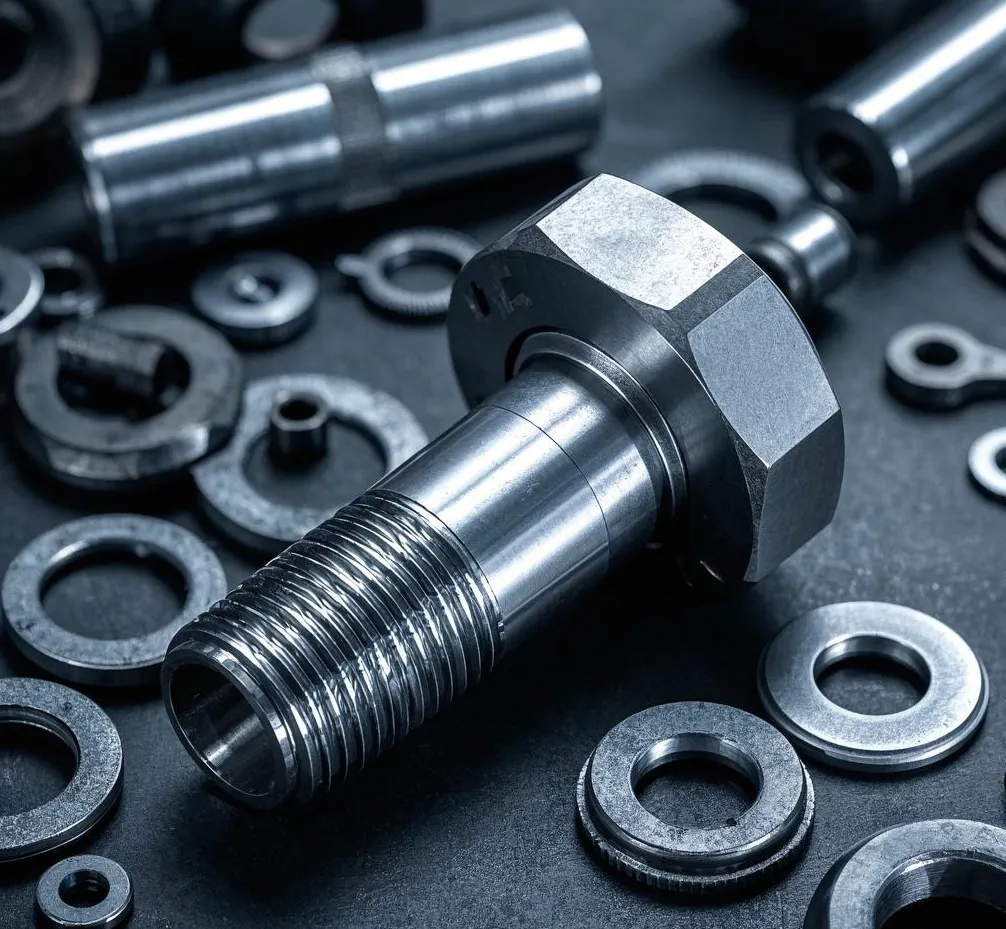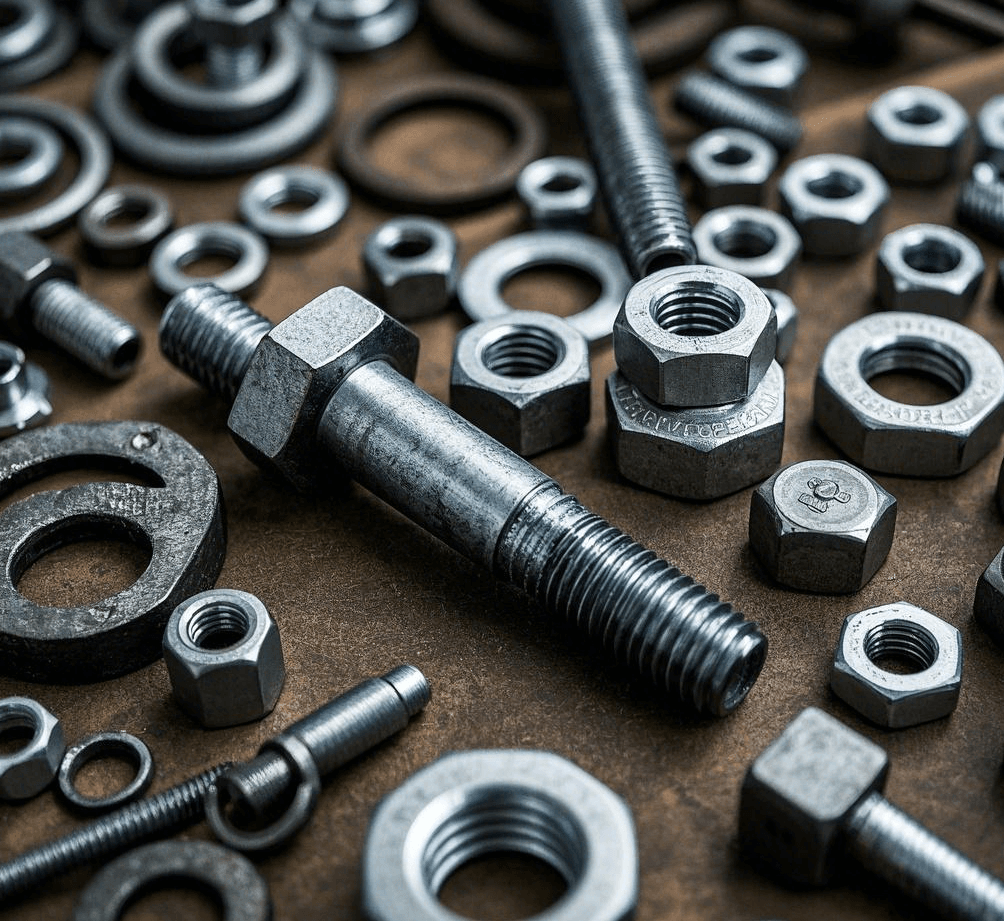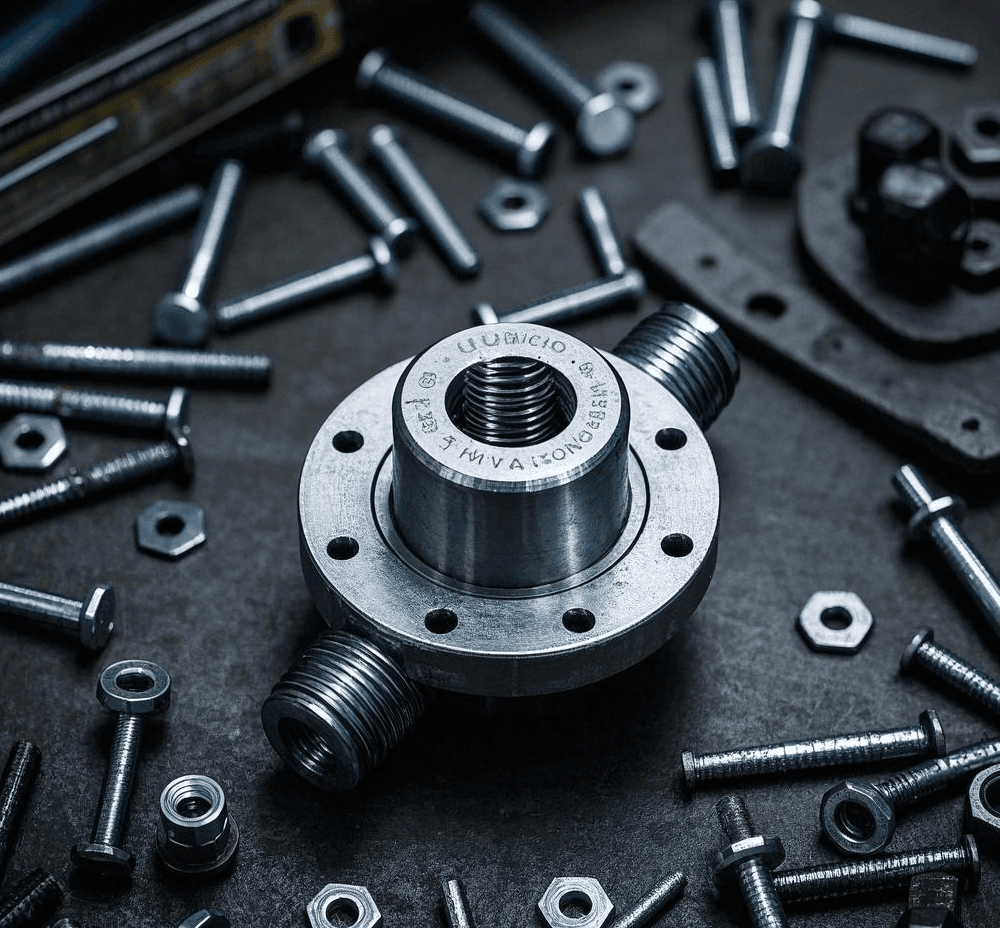Introduction: The Shift Toward Advanced Fastener Materials
Fasteners are critical components in countless industries, from aerospace to construction, where they must reliably hold structures and machinery together. Titanium fasteners, known for their exceptional properties, are increasingly replacing traditional steel fasteners in high-performance applications. But how do they compare in terms of weight and strength?
Titanium fasteners outperform traditional steel fasteners by offering significantly reduced weight while maintaining comparable or superior strength, making them ideal for applications demanding performance and efficiency.
Let me explain how these two materials stack up and why titanium fasteners are becoming the go-to choice for demanding applications.

How Does the Weight of Titanium Fasteners Compare to Steel?
Titanium fasteners are much lighter than their steel counterparts. Titanium’s density is about 4.5 g/cm³, nearly half that of steel, which has a density of approximately 7.8 g/cm³.
In my experience, this weight difference is critical in industries like aerospace and automotive, where reducing overall weight improves fuel efficiency and performance. For example:
• Aerospace Applications: Lighter fasteners reduce aircraft weight, leading to lower fuel consumption and increased payload capacity.
• Automotive Applications: Titanium fasteners contribute to lighter vehicle designs, enhancing acceleration and reducing emissions.
This weight advantage makes titanium fasteners indispensable for any application where efficiency and weight reduction are priorities.
How Does the Strength of Titanium Fasteners Compare to Steel?
Titanium fasteners offer excellent strength-to-weight ratios, often surpassing steel in specific applications. Titanium alloys, such as Grade 5 (Ti-6Al-4V), exhibit tensile strengths comparable to or higher than many grades of steel.
In my work, I’ve seen titanium fasteners provide:
• Comparable Yield Strength: Titanium fasteners can handle high loads without deforming, making them suitable for heavy-duty applications.
• Superior Fatigue Resistance: Titanium resists stress and cyclic loading better than many steels, ensuring longevity in high-stress environments.
This balance of strength and lightness allows titanium fasteners to meet rigorous performance standards without adding unnecessary weight.
How Do Titanium Fasteners Perform in Corrosive Environments?
One area where titanium fasteners excel is corrosion resistance. Titanium forms a natural oxide layer that protects it from rust and chemical damage, even in harsh environments like seawater or industrial chemicals.
I’ve observed that steel fasteners, even stainless steel, can corrode over time in highly corrosive environments, leading to failure. In contrast, titanium fasteners:
• Maintain Structural Integrity: They are ideal for marine, chemical, and offshore applications.
• Require Less Maintenance: Their resistance to corrosion reduces the need for frequent inspections and replacements.
For industries that operate in challenging conditions, titanium’s corrosion resistance is a significant advantage.
Are Titanium Fasteners as Durable as Steel Fasteners?
Titanium fasteners are highly durable, with excellent resistance to wear and deformation. While some grades of steel may offer slightly higher absolute strength, titanium’s durability under repeated stress makes it a preferred choice for dynamic and high-stress applications.
From my perspective, titanium fasteners provide:
• Longevity: Their ability to withstand extreme conditions without degradation extends their operational life.
• Impact Resistance: Titanium’s resilience to shocks and impacts ensures reliability in critical applications like aerospace and defense.
This durability makes titanium fasteners a long-term, cost-effective solution despite their higher upfront cost.

What Are the Trade-Offs Between Titanium and Steel Fasteners?
While titanium fasteners offer numerous advantages, there are some trade-offs to consider:
• Cost: Titanium fasteners are more expensive than steel due to higher material and processing costs.
• Machinability: Titanium is more challenging to machine, requiring specialized tools and techniques.
However, in my experience, the long-term benefits of titanium fasteners—such as reduced weight, enhanced strength, and corrosion resistance—often outweigh these initial disadvantages, particularly in high-performance or critical applications.
Claim: Why Titanium Fasteners Outperform Steel in Weight and Strength
Titanium fasteners combine lightweight design with high strength and exceptional corrosion resistance, surpassing steel in applications where performance and efficiency are critical. Their advantages make them a preferred choice in industries that demand durability, reliability, and reduced weight.
Conclusion: The Growing Preference for Titanium Fasteners
When comparing titanium and steel fasteners, the differences in weight, strength, and corrosion resistance clearly demonstrate titanium’s superiority in many applications. While the initial cost of titanium fasteners may be higher, their long-term benefits, including reduced weight and increased durability, make them a valuable investment for high-performance industries.
For me, titanium fasteners represent the future of fastening technology. Their unique properties enable innovations in design and performance, ensuring they remain a critical component in the most demanding environments.






